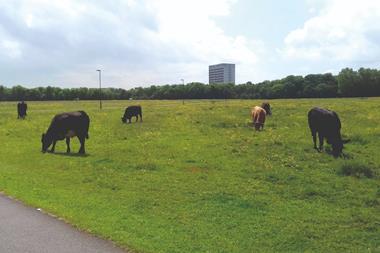As part of our Transforming Real Estate campaign, we’ve been exploring seven trends that will affect real estate over the next 20 years and how businesses should respond.

The first trend is the low-carbon economy. Improving the energy efficiency of buildings and transitioning to renewable energy sources should now be a strategic business priority for all real estate businesses. Developing new assets to meet low- or zero-carbon standards and retrofitting existing assets to deliver better environmental performance will need to be the future norm.
Meanwhile, technology is going to completely revolutionise the way we buy, sell, use and interact with buildings. Technologies such as artificial intelligence, robotics and autonomous vehicles will influence building designs and jobs for decades to come.
Businesses will also need to think about changing demographic patterns, working practices and employee expectations that are set to transform workplaces. A successful built environment will need to provide adaptable spaces that can respond successfully to the needs of demographics and changing workplace practices.

Another big trend is urbanisation. By 2030, more than 82% of the UK’s population will live in urban areas. Buildings and public spaces can enhance not only the sustainability but also the liveability and appeal of urban centres. Moreover, ensuring cities have access to sufficient infrastructure and resources to support a growing population will be fundamental to their success.
One trend we’ve seen come to the fore is health and wellbeing. The built environment can combat some of society’s most pressing challenges, such as obesity and mental health. There is a significant opportunity for landlords to attract occupiers and residents to buildings that actively mitigate lifestyle-related ill health and offer amenities that enhance better health and wellbeing.
Then we come to the challenge of land and resource scarcity. The development and use of buildings make up nearly 50% of global resource use. Real estate businesses must become smarter about the way they use land and resources by thinking about the adaptability of space and designing materials and components that can be reused, repurposed and recycled.
Finally, transparency will become increasingly important. Customers, employees and communities are demanding that businesses demonstrate the social value they generate. Real estate companies will need to show how their buildings are designed to benefit the end user and surrounding communities – creating local social value alongside economic value.






























No comments yet